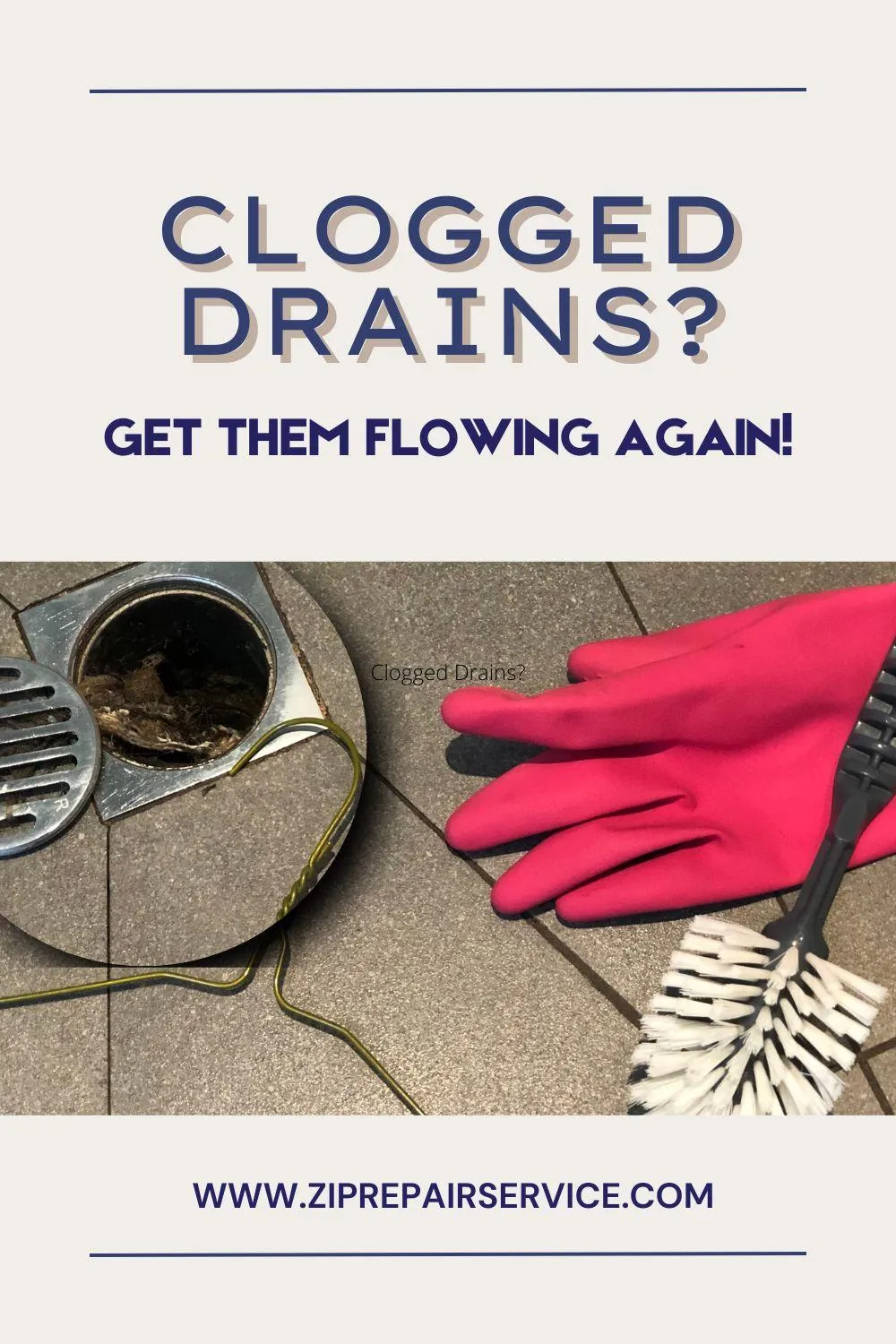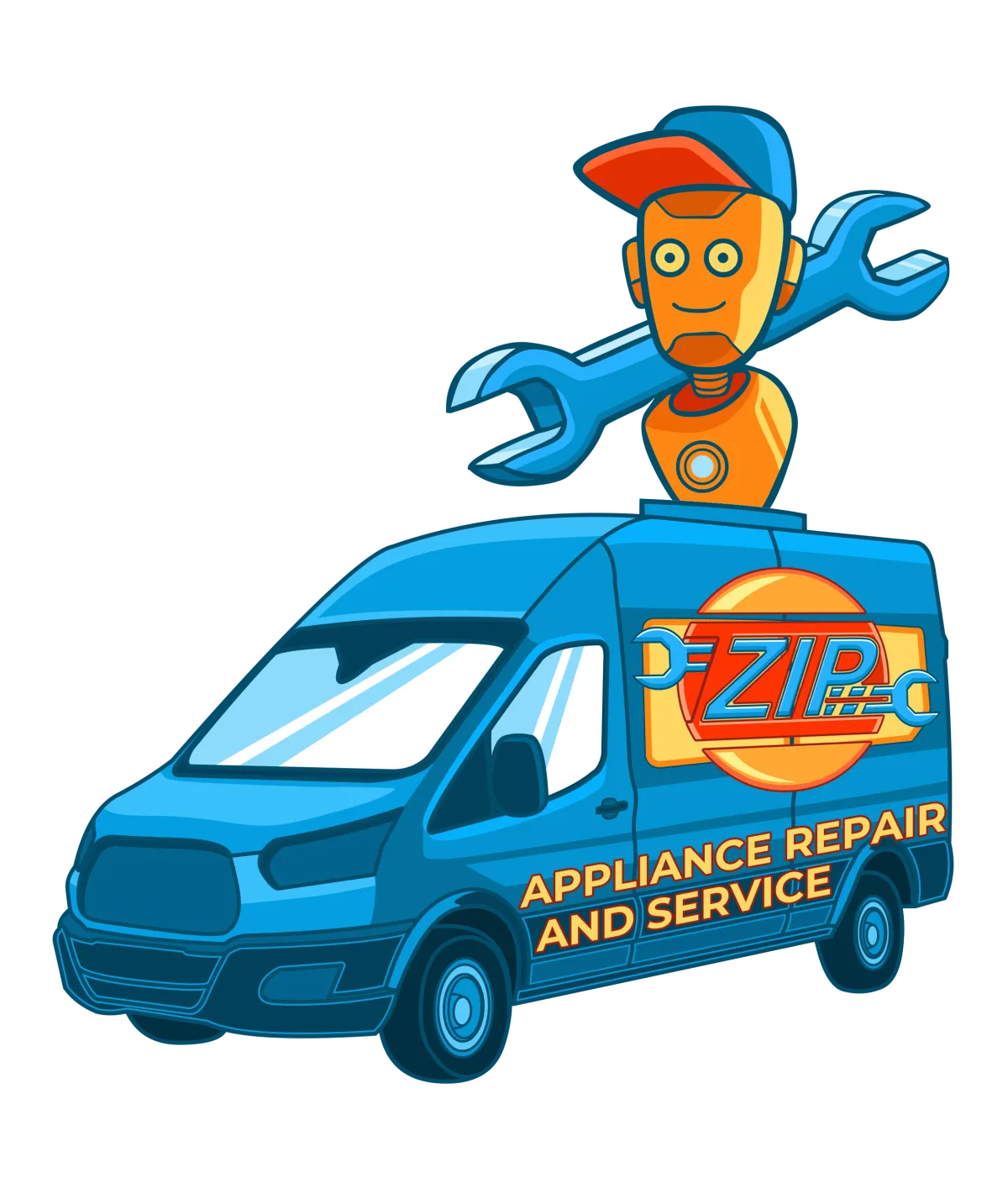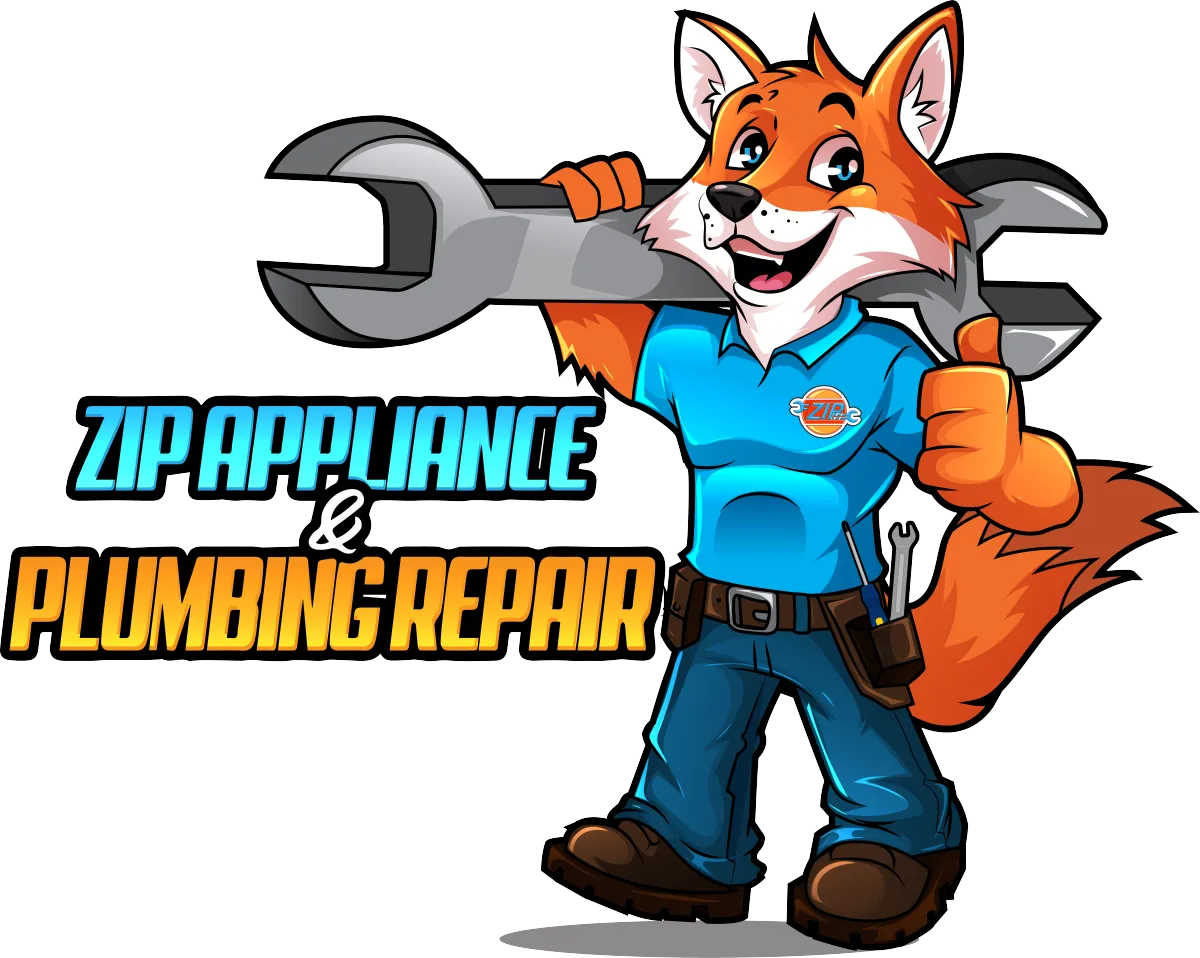Phone: (559) 272-4265
Appliance Repair Tips For Bakersfield, CA Residents

Clogged Drains? Get Them Flowing Again!
Don't let clogged drains disrupt your daily routine. Our expert plumbers offer fast and effective drain cleaning solutions to get your plumbing back in working order. - Appliance Boss
Introduction
Have you ever stood in your shower, watching the water slowly swirl down the drain, only to see it mysteriously creep back up? Or perhaps you've experienced the unpleasant aroma of a clogged sink, a constant reminder of the lurking plumbing issue beneath your feet. These common household inconveniences, while often frustrating, can be easily remedied with a bit of knowledge and the right approach.
In this comprehensive guide, we'll delve into the various causes of clogged drains, explore the potential consequences, and provide effective solutions to keep your plumbing system flowing smoothly. From the simple act of hair removal to the more complex task of dealing with tree roots, we'll cover it all. So, let's dive in and discover how to conquer those pesky clogs once and for all.

Common Causes of Clogged Drains
Drains can become clogged for a variety of reasons, ranging from everyday household activities to more insidious culprits lurking beneath the surface. Let's explore some of the most common causes:
Hair and Soap Scum: This slimy duo is a frequent culprit behind clogged shower drains. As hair and soap scum accumulate, they form a sticky, almost impenetrable barrier that can restrict water flow.
Food Debris: Kitchen drains are particularly susceptible to clogs caused by food particles. Leftover scraps, grease, and coffee grounds can all contribute to the buildup of a slimy, odoriferous mass.
Foreign Objects: Lost items, such as jewelry, toys, or even hairbrushes, can accidentally slip down the drain and cause a blockage.
Tree Roots: In some cases, tree roots can infiltrate sewer lines and cause significant clogs. These invasive roots can grow through cracks or joints in the pipes, leading to blockages and potential sewage backups.
Consequences of Clogged Drains
Clogged drains can have a significant impact on your daily life, both in terms of convenience and potential health risks. Some of the most common consequences include:
Slow Draining: This is often the first sign of a clog. Slow-moving drains can be frustrating and inconvenient, particularly when you're trying to get ready for work or school.
Water Backup: If a clog is severe enough, it can cause water to back up into sinks, tubs, or even toilets. This can be a messy and unpleasant situation, and it can also lead to water damage.
Foul Odors: Clogged drains can emit unpleasant odors, which can make your home uncomfortable and unpleasant.
Health Hazards: Bacteria and mold can thrive in clogged drains, potentially posing a health risk. These microorganisms can cause respiratory problems, allergies, and other health issues.
DIY Drain Cleaning Solutions
Before calling a plumber, it's worth trying a few DIY solutions to see if you can clear the clog yourself. Here are some common methods:
Baking Soda and Vinegar: This classic remedy involves pouring baking soda down the drain, followed by vinegar. The chemical reaction can help to break up clogs.
Boiling Water: Hot water can sometimes dislodge clogs, particularly if they are caused by grease or soap scum.
Drain Snake: A drain snake is a manual tool that can be used to physically remove clogs.
When to Call a Professional Plumber
If your DIY attempts are unsuccessful or if you're dealing with a severe clog, it's time to call a professional plumber. Plumbers have the tools and expertise to diagnose and resolve even the most stubborn clogs.
Preventive Maintenance
The best way to avoid clogged drains is to practice preventive maintenance. This includes:
Regular Cleaning: Regularly clean your sink and tub drains to prevent buildup.
Hair Catcher Use: Use hair catchers in your shower drains to prevent hair from clogging the pipes.
Avoid Harsh Chemicals: Harsh chemicals can damage your pipes and worsen clogs over time. Opt for natural or eco-friendly drain cleaners instead.
By following these tips and seeking professional help when needed, you can keep your drains flowing freely and avoid the frustration and inconvenience of clogged pipes.
Conclusion
In conclusion, clogged drains are a common household problem that can be both frustrating and inconvenient. By understanding the various causes of clogs, the potential consequences, and the effective solutions available, you can take proactive steps to prevent these issues and ensure your plumbing system remains in optimal condition.
Whether you choose to tackle the problem yourself with DIY methods or seek professional assistance, remember that prevention is key. Regular maintenance, such as cleaning drains and using hair catchers, can go a long way in preventing clogs and ensuring your home remains comfortable and odor-free.
So, the next time you find yourself dealing with a sluggish drain, don't panic. With the information and tips provided in this guide, you'll be well-equipped to address the issue and restore your plumbing system to its proper functioning.

Clogged Drains? Get Them Flowing Again!
Don't let clogged drains disrupt your daily routine. Our expert plumbers offer fast and effective drain cleaning solutions to get your plumbing back in working order. - Appliance Boss
Introduction
Have you ever stood in your shower, watching the water slowly swirl down the drain, only to see it mysteriously creep back up? Or perhaps you've experienced the unpleasant aroma of a clogged sink, a constant reminder of the lurking plumbing issue beneath your feet. These common household inconveniences, while often frustrating, can be easily remedied with a bit of knowledge and the right approach.
In this comprehensive guide, we'll delve into the various causes of clogged drains, explore the potential consequences, and provide effective solutions to keep your plumbing system flowing smoothly. From the simple act of hair removal to the more complex task of dealing with tree roots, we'll cover it all. So, let's dive in and discover how to conquer those pesky clogs once and for all.

Common Causes of Clogged Drains
Drains can become clogged for a variety of reasons, ranging from everyday household activities to more insidious culprits lurking beneath the surface. Let's explore some of the most common causes:
Hair and Soap Scum: This slimy duo is a frequent culprit behind clogged shower drains. As hair and soap scum accumulate, they form a sticky, almost impenetrable barrier that can restrict water flow.
Food Debris: Kitchen drains are particularly susceptible to clogs caused by food particles. Leftover scraps, grease, and coffee grounds can all contribute to the buildup of a slimy, odoriferous mass.
Foreign Objects: Lost items, such as jewelry, toys, or even hairbrushes, can accidentally slip down the drain and cause a blockage.
Tree Roots: In some cases, tree roots can infiltrate sewer lines and cause significant clogs. These invasive roots can grow through cracks or joints in the pipes, leading to blockages and potential sewage backups.
Consequences of Clogged Drains
Clogged drains can have a significant impact on your daily life, both in terms of convenience and potential health risks. Some of the most common consequences include:
Slow Draining: This is often the first sign of a clog. Slow-moving drains can be frustrating and inconvenient, particularly when you're trying to get ready for work or school.
Water Backup: If a clog is severe enough, it can cause water to back up into sinks, tubs, or even toilets. This can be a messy and unpleasant situation, and it can also lead to water damage.
Foul Odors: Clogged drains can emit unpleasant odors, which can make your home uncomfortable and unpleasant.
Health Hazards: Bacteria and mold can thrive in clogged drains, potentially posing a health risk. These microorganisms can cause respiratory problems, allergies, and other health issues.
DIY Drain Cleaning Solutions
Before calling a plumber, it's worth trying a few DIY solutions to see if you can clear the clog yourself. Here are some common methods:
Baking Soda and Vinegar: This classic remedy involves pouring baking soda down the drain, followed by vinegar. The chemical reaction can help to break up clogs.
Boiling Water: Hot water can sometimes dislodge clogs, particularly if they are caused by grease or soap scum.
Drain Snake: A drain snake is a manual tool that can be used to physically remove clogs.
When to Call a Professional Plumber
If your DIY attempts are unsuccessful or if you're dealing with a severe clog, it's time to call a professional plumber. Plumbers have the tools and expertise to diagnose and resolve even the most stubborn clogs.
Preventive Maintenance
The best way to avoid clogged drains is to practice preventive maintenance. This includes:
Regular Cleaning: Regularly clean your sink and tub drains to prevent buildup.
Hair Catcher Use: Use hair catchers in your shower drains to prevent hair from clogging the pipes.
Avoid Harsh Chemicals: Harsh chemicals can damage your pipes and worsen clogs over time. Opt for natural or eco-friendly drain cleaners instead.
By following these tips and seeking professional help when needed, you can keep your drains flowing freely and avoid the frustration and inconvenience of clogged pipes.
Conclusion
In conclusion, clogged drains are a common household problem that can be both frustrating and inconvenient. By understanding the various causes of clogs, the potential consequences, and the effective solutions available, you can take proactive steps to prevent these issues and ensure your plumbing system remains in optimal condition.
Whether you choose to tackle the problem yourself with DIY methods or seek professional assistance, remember that prevention is key. Regular maintenance, such as cleaning drains and using hair catchers, can go a long way in preventing clogs and ensuring your home remains comfortable and odor-free.
So, the next time you find yourself dealing with a sluggish drain, don't panic. With the information and tips provided in this guide, you'll be well-equipped to address the issue and restore your plumbing system to its proper functioning.
If your dryer has been giving you problems, contact Zip Appliance Repair & Service at (661) 387-2282

Appliance Repair In A Zip
If you need a dryer repair call our Team at (661) 387-2282, or visit our online scheduling page to request service.
Appliance Repair
Plumbing Repair Services
HAVE A QUESTION, CALL (661) 387-2282

Online Offers
Take advantage of our online discount offers - save time and money...

Residential & Commercial appliances
See what our company can do for you

Appliance Repair Tips
If your appliance is not working properly...

1405 Commercial Way ste 100
Bakersfield, CA 93309
Lic # 1116346
Equipment We Sevice
- A Call To Confirm Your Appointment Time
- A Email Detailing Your Assigned Technician
- Information Needed Before The Repair Can Be Started
- An Estimate Of Work To Be Done
© 2024 ZIP APPLIANCE REPAIR & SERVICE LLC








